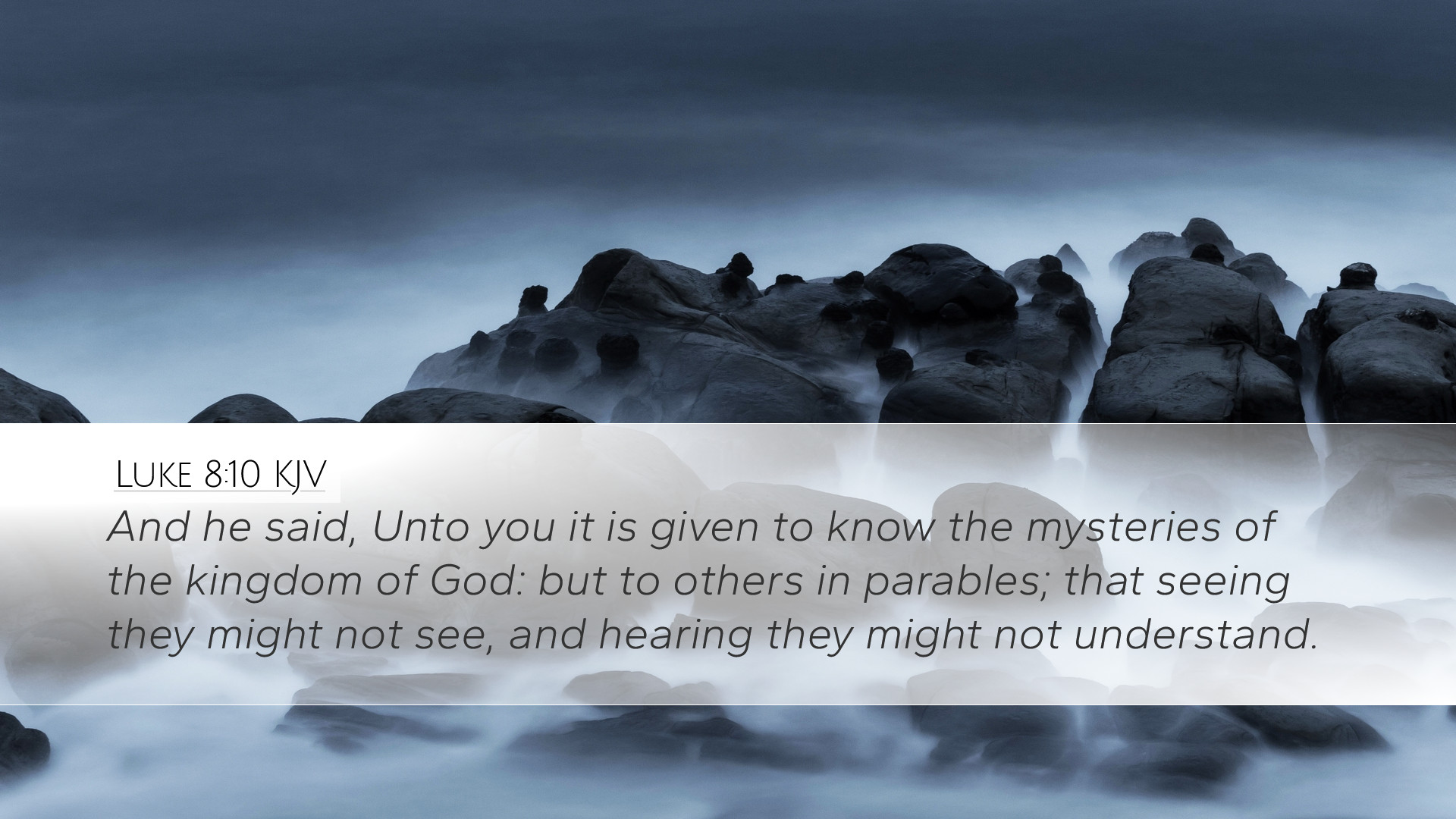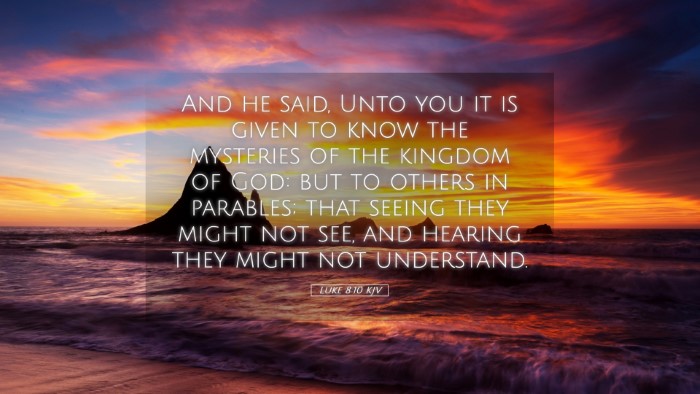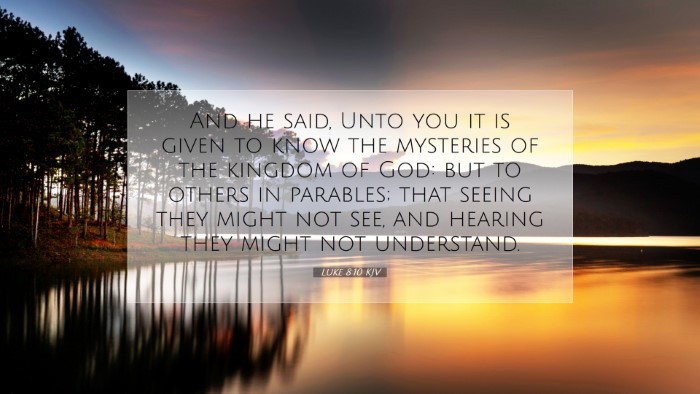Old Testament
Genesis Exodus Leviticus Numbers Deuteronomy Joshua Judges Ruth 1 Samuel 2 Samuel 1 Kings 2 Kings 1 Chronicles 2 Chronicles Ezra Nehemiah Esther Job Psalms Proverbs Ecclesiastes Song of Solomon Isaiah Jeremiah Lamentations Ezekiel Daniel Hosea Joel Amos Obadiah Jonah Micah Nahum Habakkuk Zephaniah Haggai Zechariah MalachiVerse
Luke 8:1 Luke 8:2 Luke 8:3 Luke 8:4 Luke 8:5 Luke 8:6 Luke 8:7 Luke 8:8 Luke 8:9 Luke 8:10 Luke 8:11 Luke 8:12 Luke 8:13 Luke 8:14 Luke 8:15 Luke 8:16 Luke 8:17 Luke 8:18 Luke 8:19 Luke 8:20 Luke 8:21 Luke 8:22 Luke 8:23 Luke 8:24 Luke 8:25 Luke 8:26 Luke 8:27 Luke 8:28 Luke 8:29 Luke 8:30 Luke 8:31 Luke 8:32 Luke 8:33 Luke 8:34 Luke 8:35 Luke 8:36 Luke 8:37 Luke 8:38 Luke 8:39 Luke 8:40 Luke 8:41 Luke 8:42 Luke 8:43 Luke 8:44 Luke 8:45 Luke 8:46 Luke 8:47 Luke 8:48 Luke 8:49 Luke 8:50 Luke 8:51 Luke 8:52 Luke 8:53 Luke 8:54 Luke 8:55 Luke 8:56

